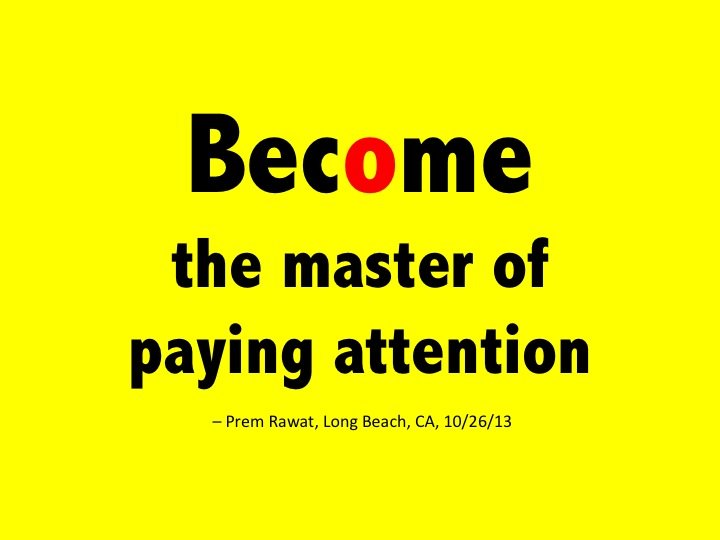
According to Edward Hallowell, M.D, the Harvard psychiatrist who wrote the highly influential “Driven to Distraction”:
…You can’t have intimacy without attention. This sounds obvious but it’s worth emphasizing because in today’s world attention can’t be taken for granted. We live in the age of distraction; in fact, the defining characteristic of our time is distraction. And you can’t get close to someone if you’re not paying attention to them.
I describe five steps towards true intimacy.
The first step is Attention. And the second step is Time. A moment of attention is not good enough; you have to spread it out over time, so, let’s say not a sound bite but ten minutes. And if you do that, then you get to the third step which is a feeling of Empathy and Understanding, in which you begin to feel what the other person is feeling. That leads to the fourth step which is what I call Connection: a genuine connection. And when you have that, you get the glorious fifth step–which is what I call Playing. Play is the action of love.
But the absolute cornerstone is indeed attention.
Connection is the missing ingredient in so many people’s lives. The beauty of connection is that it’s free, and infinite in supply. The hard part is that people don’t access it nearly as much they ought to.
He’s right on target. Attention and intimacy are hugely related. Talk to anyone in a long-term marriage or relationship. If there are complaints, the most common one — by far — is the belief or perception that one’s partner does not pay attention. By itself, it can create strain and problems in a relationship. Throw in other factors — economics, tidiness, etc. — and you might even have a deal breaker on your hands.
In a sense, attention is the very essence of intimacy. Whether it’s sexual connection or routine daily conversation, we all want to feel visible. It’s not a male or a female thing. It’s not a cultural thing. Everybody, no matter who they are, wants to feel visible to someone. If they don’t care about feeling visible, then they don’t want a romantic relationship or marriage. But even then, I suspect most people would take visibility over invisibility, given the choice.
Look at Dr. Hallowell’s prescription to address the problem: Spreading attention, devoting time, and exhibiting empathy/understanding. These are all active choices. These are all things the partner or lover has to consciously do. Forget about using ADHD as a sole or primary excuse for your problems. Even the man who literally wrote the book on adult ADHD says that if you want to get something out of your relationship, you have to put something into it as a self-responsible, always self-aware mature adult.
Granted, none of this will work with a partner who doesn’t wish the best for you. There are emotionally abusive, narcissistic and sociopathic people out there. Most do not fit these labels, but some do. If you are unfortunate enough to be involved with or married to such a person, none of this will make a difference. You’re driving down a one-way street expecting it to be two-way. It’s never going to work.
However, if your relationship was once good or great, and has become mediocre, then lack of attention is probably part of the reason why. Like Dr. Hallowell, I know that sounds obvious. But if counseling people (including couples) for 25 years has taught me anything, it’s that most of life’s answers are really not all that complicated. It’s implementing them that’s hard.
In a world of competing priorities, paying attention is harder than ever before. Let’s not turn this into a medical disease. Let’s just face the truth and try to figure out better ways, in our own personal and individual lives, to address it. The specific options are countless. Date night isn’t a bad idea. Quality conversation time, outside of media/television, is a phenomenal idea. It’s remarkable how powerful such a simple thing as taking a daily walk can be for a couple. Solo walks can be spiritual experiences in the best sense of the term. Walks as a couple generate intimacy. Don’t use an inability to find the perfect or instant solution as an excuse to try nothing at all. Experiment until you find something that clicks. If you’re not married to a narcissist or a sociopath, you’ll be pleasantly surprised by how quickly these things work.
The attention issue applies to any and every situation when you’re in the company of your spouse. The deeper issue is being present. Living in the here-and-now is the cornerstone of being a serene and happy, mentally healthy person. Rationality, self-esteem and long-range purpose are critical, as well. But there’s no opportunity to bring these things to life unless or until you first master the art and science of living in the present. If you only live five minutes from now or five years from now, you’re never going to be all that happy within yourself, much less become a worthwhile and fully engaged spouse. Planning for five minutes or five years from now is a crucial part of being a fully engaged person. But so is living in the present. After all, what’s the point of all the long-range purpose if you don’t ever have a present time in which to enjoy it? Your marital relationship, if you’re fortunate enough to have one that you treasure, is the single best place to focus your attention. So start doing it!
Follow Dr. Hurd on Facebook. Search under “Michael Hurd” (Rehoboth Beach DE). Get up-to-the-minute postings, recommended articles and links, and engage in back-and-forth discussion with Dr. Hurd on topics of interest. Also follow Dr. Hurd on Twitter at @MichaelJHurd1
Check out Dr. Hurd’s latest Newsmax Insider column here!
Dr. Hurd’s writings read on the air by Rush Limbaugh! Read more HERE.
